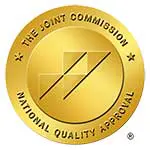Alcohol Addiction in Los Angeles
At Ritz Recovery, we are dedicated to providing hope for individuals grappling with alcohol addiction. In a city as dynamic and diverse as Los Angeles, the battle against alcohol dependency demands a specialized approach that understands the unique challenges and cultural nuances faced by our community. Ritz Recovery stands at the forefront of this fight, offering a range of personalized treatment programs that cater to the specific needs of each individual.

Understanding Alcohol Addiction
The cycle of alcohol addiction encompasses four distinct stages: initial use, early abuse, addiction, and recovery.
Initial use: Some individuals can consume alcohol without encountering any issues. However, for others, the consumption of alcoholic beverages leads to abusive patterns.
Early abuse: During this phase, individuals begin to consume alcohol more frequently or in larger quantities than before. They may also face adverse consequences stemming from their drinking, such as strained relationships or employment difficulties. Nevertheless, they often persist in their drinking habits despite these repercussions.
Addiction: The addiction stage represents the most severe phase of the cycle. Individuals in this stage develop a physical and psychological dependence on alcohol. They may perceive a compulsion to drink in order to function normally. Drinking becomes an all-consuming preoccupation, often leading to neglect of other areas of life.
Recovery: The recovery stage holds immense significance in achieving long-term sobriety. It is during this phase that individuals commence the process of rebuilding their lives, restoring their health, and learning to live without alcohol.
Symptoms Of Alcohol Addiction
The symptoms of alcohol addiction can vary from person to person, but there are several common signs that may suggest an individual is grappling with alcohol dependence. These signs include:
- Intense cravings for alcohol
- Inability to control alcohol consumption
- Experiencing withdrawal symptoms when not drinking
- Engaging in secret alcohol consumption
- Neglecting responsibilities in favor of drinking
- Persisting in drinking despite negative consequences
If you or someone you know exhibits these symptoms, it is crucial to seek assistance from a qualified professional. Alcohol addiction is a serious condition that can have enduring effects on an individual’s life. However, with appropriate treatment, recovery and the attainment of a healthy and fulfilling life are possible.
Factors Influencing Alcohol Addiction
Alcohol addiction is a multifaceted condition influenced by various potential causes. Among the most prevalent contributing factors are genetics, pre-existing mental health disorders, and trauma.
Genetics plays a significant role in alcohol addiction as it influences how the body metabolizes alcohol. Certain individuals possess a higher tolerance for alcohol, making them more susceptible to addiction. Concurrently, pre-existing mental health disorders such as anxiety and depression can contribute to the development of alcohol addiction. People may resort to alcohol as a form of self-medication, seeking relief from their symptoms. Additionally, trauma can act as a catalyst for alcohol addiction. Individuals who have experienced traumatic events may turn to alcohol as a means of numbing their emotions and coping with distressing memories.
Consequences of Alcohol Addiction
Alcohol addiction carries a multitude of common repercussions that encompass health issues, financial struggles, relationship conflicts, and employment instability. Additionally, specific effects include:
- Increased risk of stroke
- Exacerbation of mental health conditions
- Engagement in risky sexual behaviors
- Elevated blood pressure
- Alcoholic hepatitis
- Susceptibility to cancer
- Impairment of learning and memory abilities
- Social difficulties
Furthermore, according to the National Institute on Alcohol Abuse and Alcoholism, approximately one-third of all violent crimes in the United States are committed by individuals under the influence of alcohol.
Options for Treating Alcohol Addiction
Various treatment options are available to address alcohol addiction, accommodating different individuals’ needs. Inpatient treatment may be necessary for some, while outpatient services can be effective for others. Support group programs also provide valuable assistance to individuals on their journey to recovery from alcohol addiction.
It is essential to recognize that alcoholism is a chronic and progressive disease, often marked by relapses. As a result, continuous treatment is crucial.
Rehabilitation
Rehabilitation offers several benefits to those struggling with alcohol addiction. Primarily, it provides a secure and supportive environment for detoxification and comfortable recovery. By removing individuals from triggers and temptations, rehabilitation centers reduce the likelihood of relapse. Moreover, round-the-clock care and support from medical and clinical professionals are readily available, contributing to the recovery process. Emotional support during rehabilitation is invaluable, aiding individuals in overcoming addiction and establishing a solid foundation for long-term recovery.
In embracing detox, you’re not just freeing your body from substances; you’re opening up a new chapter of your life, one filled with hope, growth, and the promise of a brighter future. Remember, this journey is yours, and while the path may not always be easy, it’s one worth taking. You’re not alone, and with the right support, you can navigate through detox towards a healthier, substance-free life.
Drug Therapy
Drug therapy involves the use of medication to assist in alcohol addiction treatment. Medications can help reduce cravings and withdrawal symptoms, making abstinence more manageable. Different types of medication exist for alcohol addiction treatment, and their effectiveness varies from person to person. One commonly used medication is naltrexone, an opioid antagonist that blocks the effects of opioids in the brain, reducing cravings and withdrawal symptoms. Acamprosate, a GABA agonist that elevates GABA levels, is another frequently employed medication.
Counseling
Counseling serves as a form of therapy for individuals grappling with alcohol addiction. It equips them with the necessary tools and support to overcome addiction and foster positive changes in their lives. Counseling helps individuals understand the underlying causes of their addiction, develop coping mechanisms for triggers and cravings, and learn new, healthy behaviors. Long-term support and guidance are provided throughout the recovery journey.
Nutritional Changes
Making nutritional changes can assist in alcohol addiction recovery in various ways. Adopting a healthy diet can help reduce alcohol cravings. Consuming protein-rich and fiber-rich foods helps keep the stomach full, reducing the urge to drink. Additionally, a diet abundant in vitamins and minerals enhances overall physical health, minimizing the risk of relapse.
Social Support
Social support is widely recognized as beneficial for individuals battling alcohol addiction. Studies have demonstrated that those with a strong support system are more likely to abstain from drinking, less likely to relapse, and more likely to achieve long-term sobriety. Social support offers a sense of belonging and connection, which is especially crucial for individuals who have strained relationships due to addiction. It also provides accountability, helping individuals stay committed to their sobriety goals. Moreover, social support instills a sense of hope, particularly for those who feel they have reached a low point and are in need of support.
Get Help Today
Schedule a confidential assessment with our admissions team.





